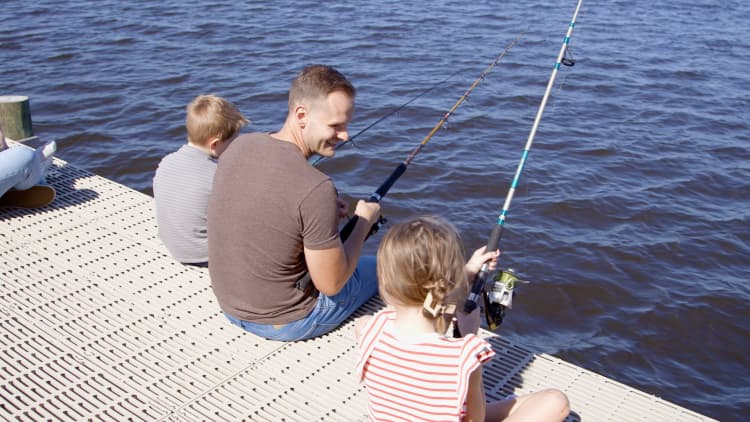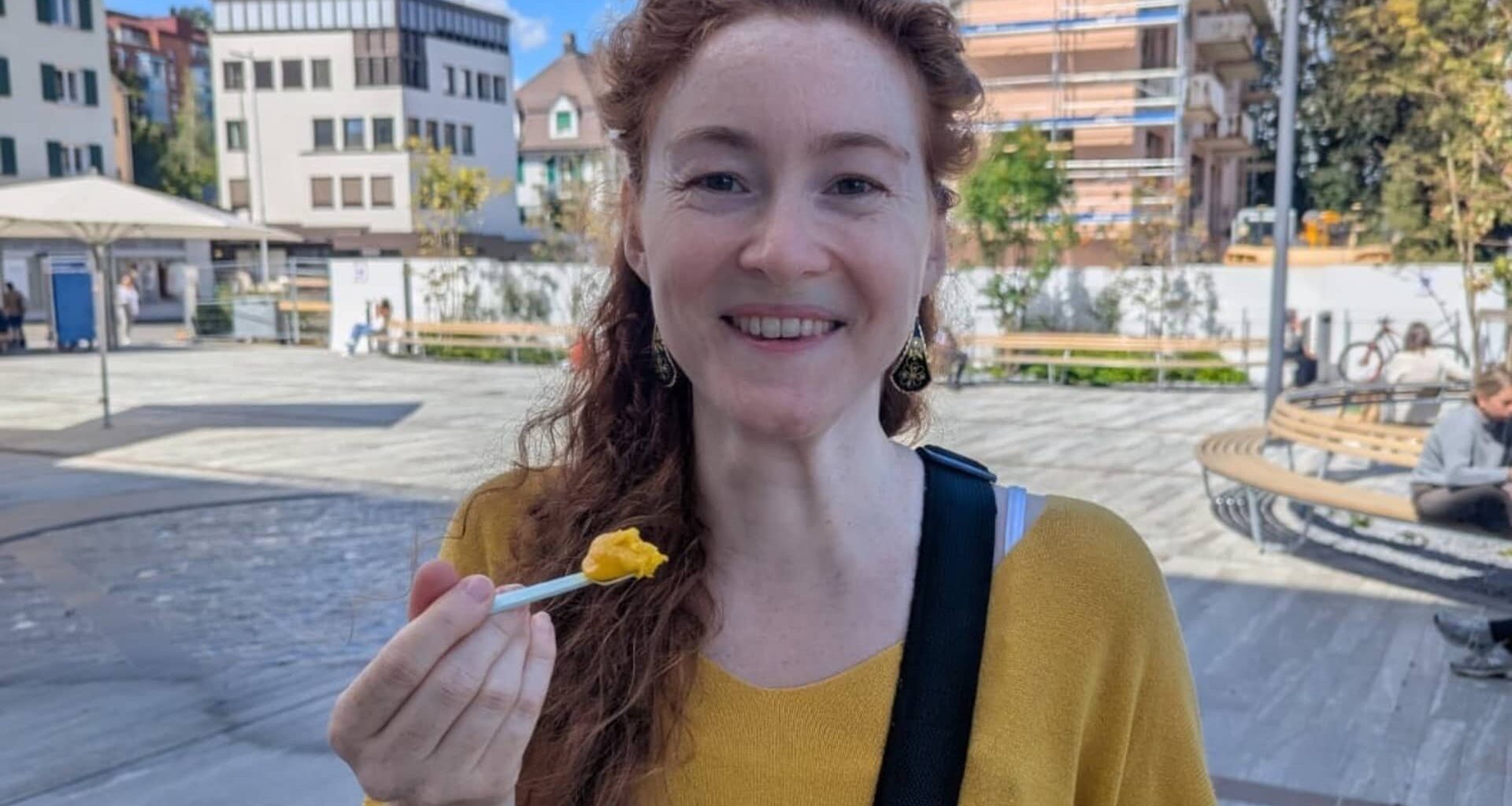In April 2024, Florence Poirel left her $390,000-a-year job at Google for what she calls a “mini retirement.”
Eighteen months later, she’s not sure she’ll ever return to full-time work. “I have to say, I’m not particularly antsy to go back to employment,” she tells CNBC Make It.
The 37-year-old lives in Switzerland with her partner, Jan, a fellow Googler who stepped away at the same time. Poirel first started thinking seriously about financial independence in 2018, after meeting Jan, who is 17 years her senior.
“I could not just wait for retirement to enjoy my time with him because he would be much older at that time,” she says.
How financial independence changed how she spends her money
Thinking about how they could enjoy more time together led Poirel to the FIRE movement — short for “financial independence, retire early” — which focuses on saving and investing aggressively to gain the freedom to step back from work sooner.
Poirel had always been careful with money, saving much of her income even as her salary rose. And despite earning a high salary, she rarely dined out, spent little on entertainment and flew economy or stayed in modest hotels when traveling, she says.
Florence Poirel outside her home in Thalwil, Switzerland.
Gabriel Pecot | CNBC Make It
But discovering FIRE gave her frugality a new sense of purpose. And as she learned more about sustainability, she became vegan and started weighing the environmental and ethical impact of everything she bought.
“While I was mostly driven by frugality at the start of my journey, my buying process is now sustainability driven,” she says.
Now, before buying anything, Poirel asks herself the following questions:
- Do I really need this? Is it worth adding as future waste for the planet?
- Can I buy it secondhand?
- Is it vegan?
- Was it ethically produced?
- Is it recyclable, and how long would it take to decompose once thrown away?
“I think it’s important to understand how money gives power for good, whether you actually spend it or not,” she says.
By the time she left Google, Poirel had about $1.5 million in the bank — enough to take a long break from full-time work.
To make her savings last in one of the costliest countries in the world, she continues to live simply and avoid unnecessary spending. Instead of expensive nights out, her days mostly revolve around hiking, swimming in Lake Zurich and cooking at home with Jan.
However, she’s willing to spend more on items that are well made and designed to last. “If I bring something into my home or wardrobe, it has to be something environmentally and ethically sound,” she says.
Florence Poirel with her partner, Jan.
Gabriel Pecot | CNBC Make It
She isn’t necessarily spending less than she used to — just spending more intentionally. “It’s not about cutting everything out, it’s about choosing better,” she says.
At the same time, her checklist isn’t hard to follow, since she’s always been frugal by nature. “I know people often use shopping as therapy,” she says. “This has never been the case for me. I find shopping boring at best and stressful at worst.”
All amounts are in U.S. dollars, converted from Swiss francs at the OANDA exchange rate of 1 CHF to 1.22 USD on May 31, 2025.
Want to earn more and grow your money? Save 30% with this earnings-boosting bundle of our top courses.
Plus, sign up for CNBC Make It’s newsletter to get tips and tricks for success at work, with money and in life, and request to join our exclusive community on LinkedIn to connect with experts and peers.

